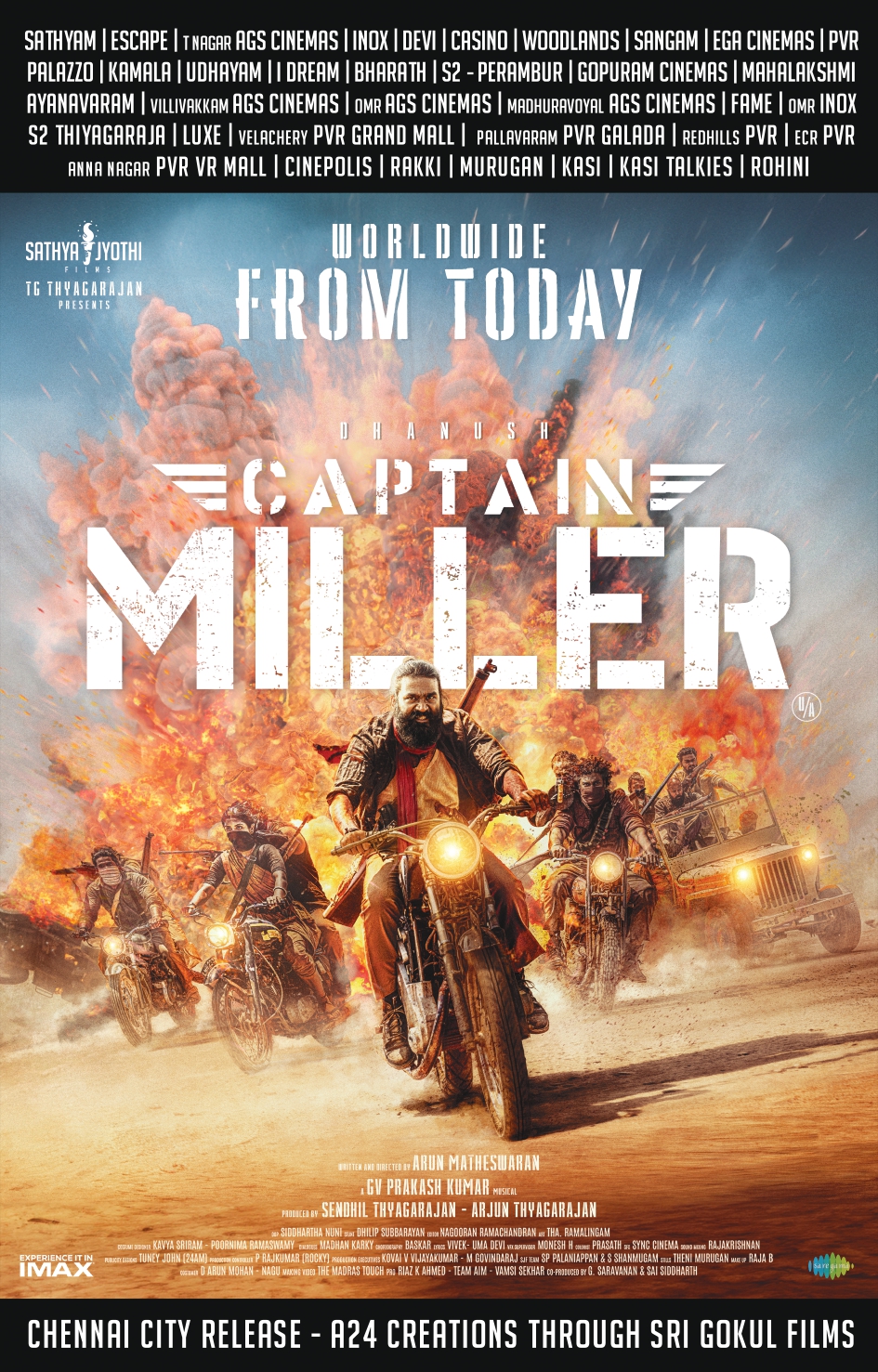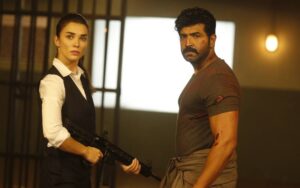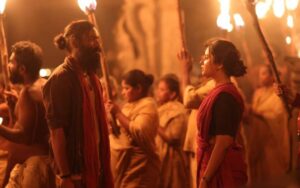Review – Sarkar

Film: Sarkar
Dialogue Writer: Jeyamohan
Director: A R Murugadoss
Cast: Vijay, Keerthi Suresh, Yogi Babu, Varalaxmi Sarathkumar, Radha Ravi, Pazha Karuppiah and others
Music: A R Rahman
Cinematography:Girish Gangadharan
Actor Vijay’s Sarkar is an engaging, political thriller that keeps you hooked to the screen for two hours and forty five minutes. The story revolves around Sundar Ramasamy (Vijay), a corporate genius and the CEO of a firm called GL. He resides in the US and often visits countries around the world, buying out companies and wiping out competition. So impressive is Sundar’s track record that no matter to which country he goes, corporate firms in that country shiver in fear, wondering if whether the man will shut them out of business.
Under these circumstances, Sundar one day arrives in India. As expected corporate giants here tremble wondering who will go out of business next. Sundar says he is here only to cast his vote and that he will fly out of the country in a few hours time. However, he attempts to cast his vote only to find that his vote has already been cast.
A furious Sundar is determined to make his vote count. He files a case in the court demanding justice and pointing out that under Section 49(P), the Election Commission will have to permit a bonafide voter to cast his vote even if it is found that his vote has already been cast by a bogus person. Sundar spends lakhs to fight the case, which he wins. The court orders that the election commission make provision for allowing Sundar to cast his vote the next week and says that in the meantime, the results for that constituency cannot be announced. The High Court’s order annoys the ruling party, which is headed by Masilamani (Pazha Karuppiah), a man who has been in power for three consecutive terms. His second in command, Rendu (Radha Ravi), doesn’t think too much of this move by Sundar. After all, it is a matter of a single vote, what difference can it make is what he thinks. With this thought in mind, he throws a challenge to Sundar.
Sundar, who, until then, was looking to only cast his vote and go back to his business, get riled by the challenge. He decides to contest the election against person contesting in that constituency. Soon, Sundar gets to understand that the administration here has gone to dogs and that he will have to do more to set the entire system right. To add fuel to fire, Masilamani continues to do and say things that spur Sundar to turn aggressive by the day. Eventually, Sundar decides to field candidates in all 234 constituences of the state. It is then that he realises that the real brain of the party in power is not Masilamani but a woman, who operates from behind the scenes…
The Positives:
Dialogue writer Jeyamohan’s dialogues are sharp and incisive and constantly keep thrilling you. The film has a generous dosage of such dialogues and they add to the delight of the audience. Be it the court scene, where Sundar argues the need to allow him to vote and why even a single vote is important, or the scene where he explains how corporates waste tomatoes to keep farmers poor despite a huge demand for the produce or the scene where Sundar’s driver explains to him how the public consider sharing of information on What’s App as their only social obligation, the dialogues are deadly and help the film score. A large portion of the credit for the film being interesting must go to Jeyamohan and his dialogues.
Next, the film has got its casting right. Be it Varalakshmi as Paapa or Radha Ravi as Rendu or Pazha Karuppiah as Masilamani, every single person fits their role to the T. Keerthy Suresh, Yogi Babu, Radha Ravi and Pazha Karuppiah all do exceedingly well in the film. But the star performer is really Varalakshmi Sarathkumar, who comes up with a sterling performance. In fact, this performance of hers must settle all doubts as to who will be the most perfect choice to play Jayalalithaa in her biopic. Varalakshmi’s only flaw until this film was delivering her dialogues at a pace that most people would not be able to comprehend. In this film, she manages to slow down the pace at which she utters her dialogues and that enhances her performance even more.
Girish Gangadharan’s cinematography is neat and refreshing and adds value to the narration. Murugadoss does a neat job as director and has no problems holding the audience’s attention for a good two and a half hours.
Talking of negatives, Vijay’s mannerisms in this film are a lot more annoying than they normally are. The artificial accent and the desperate effort to make himself look both intelligent and powerful just goes over the line. As a result, you wish that he wouldn’t show off so much and rather get on with delivering his dialogues. Nevertheless, despite his antics, the film is still enjoyable.
The song sequences are a drain. Except for one song, none of the other songs have any retention value. The dances choreographed for them are also just about okay.
If the songs are bad, so are the fights. Each fight is exaggerated to a point that you can’t help but smile on some occasions. Except for one fight inside a police vehicle, all other fights are terrible to say the least.
Despite all this, the film definitely makes the cut for the kind of awareness it creates on several crucial social issues. On the whole, I’ll give this film a 3.5 stars out of a possible 5.








